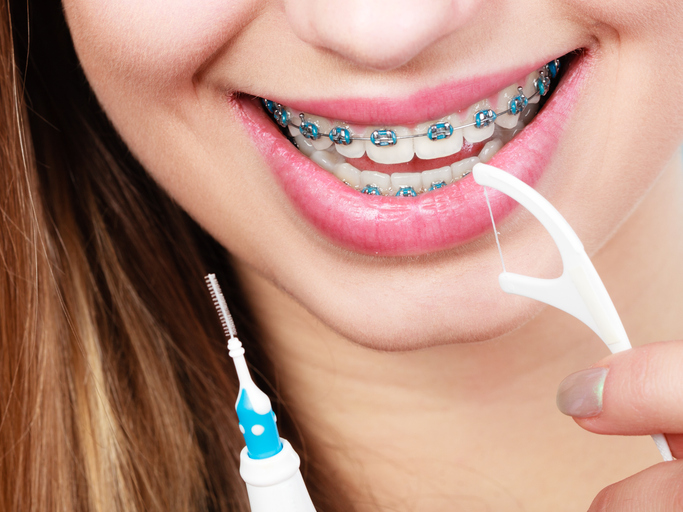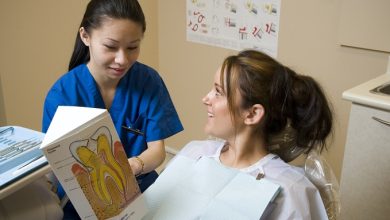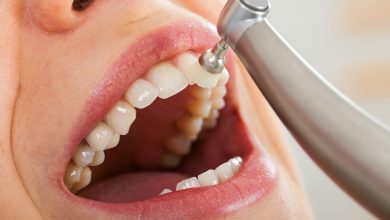How Often Should I Go for Dental Cleaning? Tips and Guidelines

Dental cleaning should be done every six months. Regular dental cleanings are essential for maintaining good oral hygiene and preventing dental problems.
Neglecting dental cleanings can lead to plaque buildup, tartar formation, gum disease, and tooth decay. By going for regular dental cleanings, you can ensure that your teeth and gums stay healthy and that any potential dental issues are detected and addressed early on.
Ultimately, the frequency of dental cleanings may vary depending on your individual needs and oral health condition, so it’s best to consult with your dentist to determine the most suitable interval for you.
Importance Of Regular Dental Cleanings
Regular dental cleanings are essential for maintaining optimal oral health. These cleanings offer numerous benefits, contributing to healthier teeth and gums. By undergoing dental cleanings on a recommended schedule, you can effectively prevent dental problems such as cavities, gum disease, and tooth loss.
- Prevents cavities: Dental cleanings remove plaque and tartar buildup, reducing the risk of tooth decay.
- Keeps gum disease at bay: Removing plaque and tartar helps prevent gum disease, preserving your gum health.
- Early detection of oral issues: During dental cleanings, your dentist can identify any signs of oral problems like oral cancer or gum disease in their early stages, allowing for timely treatment.
- Freshens breath: Dental cleanings remove bacteria that can cause bad breath, leaving you with fresher breath.
- Improves overall health: Oral health is linked to overall health, so regular dental cleanings can contribute to better overall well-being.
By understanding the benefits of regular dental cleanings, you can prioritize your oral health and ensure a beautiful smile for years to come.
Factors Influencing The Frequency Of Dental Cleanings
In determining how often you should go for dental cleanings, several factors come into play. One such factor is your age. Young children and teenagers may require dental cleanings more frequently than adults, as their teeth are still developing and more susceptible to tooth decay. Additionally, individuals with certain dental health conditions may need more frequent cleanings to maintain oral health. These conditions can include gum disease, tooth decay, or a history of dental problems. Your personal habits and lifestyle can also impact the frequency of dental cleanings needed. For example, if you consume a lot of sugary foods or beverages, smoke, or neglect proper oral hygiene, you may require more frequent cleanings to prevent dental issues. Ultimately, it is important to consult with your dentist to determine the ideal frequency for your dental cleanings based on these factors and your specific oral health needs.
Guidelines For Determining Optimal Dental Cleaning Frequency
Regular dental cleaning is an essential part of maintaining optimal oral health. The frequency at which you should go for dental cleaning may vary depending on various factors.
According to recommendations from dental professionals, it is important to assess individual dental needs to determine the optimal frequency of dental cleaning. Factors such as oral hygiene habits, presence of gum disease or cavities, and overall oral health condition should be taken into consideration.
Based on the assessment, a personalized dental cleaning schedule can be developed. For individuals with good oral health and hygiene, dental cleanings every six months may be sufficient. However, those with specific dental issues or a history of gum disease may require more frequent cleanings, such as every three to four months.
The key is to consult with your dentist to determine the ideal frequency for your dental cleanings. They can evaluate your oral health, provide personalized recommendations, and help you maintain a healthy smile.
Signs Indicating The Need For More Frequent Dental Cleanings
Regular dental cleanings are essential for maintaining optimal oral health, but the frequency depends on various factors. The presence of certain signs can indicate the need for more frequent dental cleanings. Dental issues such as gum disease, tooth decay, and persistent bad breath may necessitate additional cleanings. These conditions can accelerate the buildup of plaque and tartar, leading to further dental problems if left untreated.
Individuals with certain predisposing conditions are also more prone to dental diseases and may benefit from more frequent cleanings. These conditions include diabetes, a weakened immune system, smoking, and a history of gum disease. Regular dental cleanings can help manage these conditions and prevent oral complications.
Identifying signs of plaque and tartar buildup is crucial in determining the need for additional cleanings. Yellow or brown stains on the teeth, swollen or bleeding gums, and persistent bad breath are common indicators of excessive plaque and tartar. By removing these deposits through regular cleanings, the risk of developing more serious dental issues can be minimized.
Tips For Maintaining Good Oral Hygiene Between Dental Cleanings
How Often Should I Go for Dental Cleaning
Tips for Maintaining Good Oral Hygiene Between Dental Cleanings
Regular brushing and flossing are crucial for maintaining good oral hygiene and preventing dental issues. Brushing twice a day for at least two minutes using a fluoride toothpaste helps remove plaque and prevent tooth decay. Flossing once a day is equally important as it removes plaque and food particles from between the teeth and along the gumline. Using an antibacterial mouthwash can also help reduce bacteria and freshen breath.
Choosing the right dental products is essential for effective oral hygiene. Look for toothbrushes with soft bristles and toothpaste that contains fluoride. Consider using an electric toothbrush that can provide a more thorough cleaning. For flossing, choose a product that is comfortable to use and suits your dental needs. Ask your dentist for recommendations if you’re unsure about which products to choose.
In addition to regular brushing and flossing, there are other oral hygiene practices you can implement to maintain good dental health. These include:
| Eating a balanced diet | Limiting sugary and acidic foods can help prevent tooth decay. |
| Drinking plenty of water | Water helps rinse away food particles and keeps the mouth hydrated. |
| Avoiding tobacco products | Tobacco can stain teeth and increase the risk of gum disease. |
| Scheduling regular dental check-ups | Visiting the dentist every six months helps detect and prevent dental problems. |
By following these tips and maintaining good oral hygiene practices, you can extend the time between dental cleanings and promote a healthy smile.
Benefits Of Professional Dental Cleanings Over At-home Oral Care
Benefits of Professional Dental Cleanings Over At-Home Oral Care:
– Comprehensive cleaning techniques by dental professionals ensure the removal of hard-to-reach plaque and tartar, which can lead to tooth decay and gum disease if left untreated.
– Dental professionals are trained to identify and treat various oral health issues before they become more serious. Regular cleanings can help in early detection of problems such as cavities, gum disease, and oral cancer.
– Professional cleanings also include scaling and root planing, which are deep cleaning procedures that go beyond regular brushing and flossing. These techniques can remove built-up plaque and tartar from below the gum line, reducing the risk of gum inflammation and infection.
– During a dental cleaning, dental professionals also provide valuable oral hygiene education and tips specific to your needs, helping you maintain optimal oral health at home.
| Benefits of Professional Dental Cleanings | At-Home Oral Care |
|---|---|
| Comprehensive cleaning techniques | Standard brushing and flossing |
| Removal of hard-to-reach plaque and tartar | Surface-level plaque removal |
| Identification and treatment of oral health issues | No professional diagnosis or treatment |
| Scaling and root planing | Regular brushing and flossing cannot reach below the gum line |
| Oral hygiene education | No personalized guidance |
Faqs: Common Concerns About Dental Cleanings
Are dental cleanings painful?
Dental cleanings are generally not painful. However, some individuals may experience slight discomfort or sensitivity during the process. Your dentist or dental hygienist will ensure you are as comfortable as possible throughout the procedure.
Can dental cleanings whiten teeth?
Dental cleanings can help remove surface stains and plaque buildup, which can improve the appearance of your teeth and make them appear brighter. However, if you are looking for significant teeth whitening, your dentist may recommend additional treatments such as professional teeth whitening or veneers.
How long does a dental cleaning typically take?
The duration of a dental cleaning appointment can vary depending on factors such as the level of tartar buildup, the condition of your oral health, and whether additional treatments are needed. On average, a dental cleaning can take anywhere from 30 minutes to an hour. Your dental professional will provide a more accurate estimate based on your specific needs.

Credit: arkansasfamilydental.com
Frequently Asked Questions For How Often Should I Go For Dental Cleaning
How Often Should Dental Cleaning Be Done?
Dental cleaning should be done every six months for optimal oral health.
Is Teeth Cleaning Every 3 Months Too Much?
No, teeth cleaning every 3 months is not too much. Regular dental cleanings help prevent gum disease and maintain oral health. It is recommended to visit your dentist every 3-6 months, depending on your individual needs and dental history.
Do You Really Need Teeth Cleaning Every 6 Months?
Yes, teeth cleaning every 6 months is necessary to maintain oral health and prevent dental issues. It helps remove plaque and tartar buildup, preventing cavities, gum disease, and bad breath. Regular cleanings also allow dentists to identify and address any potential problems early on, saving you from more serious dental treatments in the future.
How Do You Know When A Tooth Needs Cleaning?
Regular dental cleanings are recommended every six months to maintain oral health. Signs that a tooth needs cleaning include tartar buildup, bad breath, tooth sensitivity, and gums that bleed easily. Get regular cleanings to prevent these issues and keep your teeth and gums healthy.
Conclusion
To maintain optimal oral health, it is recommended to schedule dental cleanings every six months. Regular cleanings help prevent gum disease, cavities, and other dental problems. By attending regular cleanings, you can avoid costly and extensive treatments in the future.
Remember, prevention is the key to a healthy and beautiful smile. Don’t wait until problems arise – prioritize your dental cleanings and enjoy a lifetime of healthy teeth and gums.





